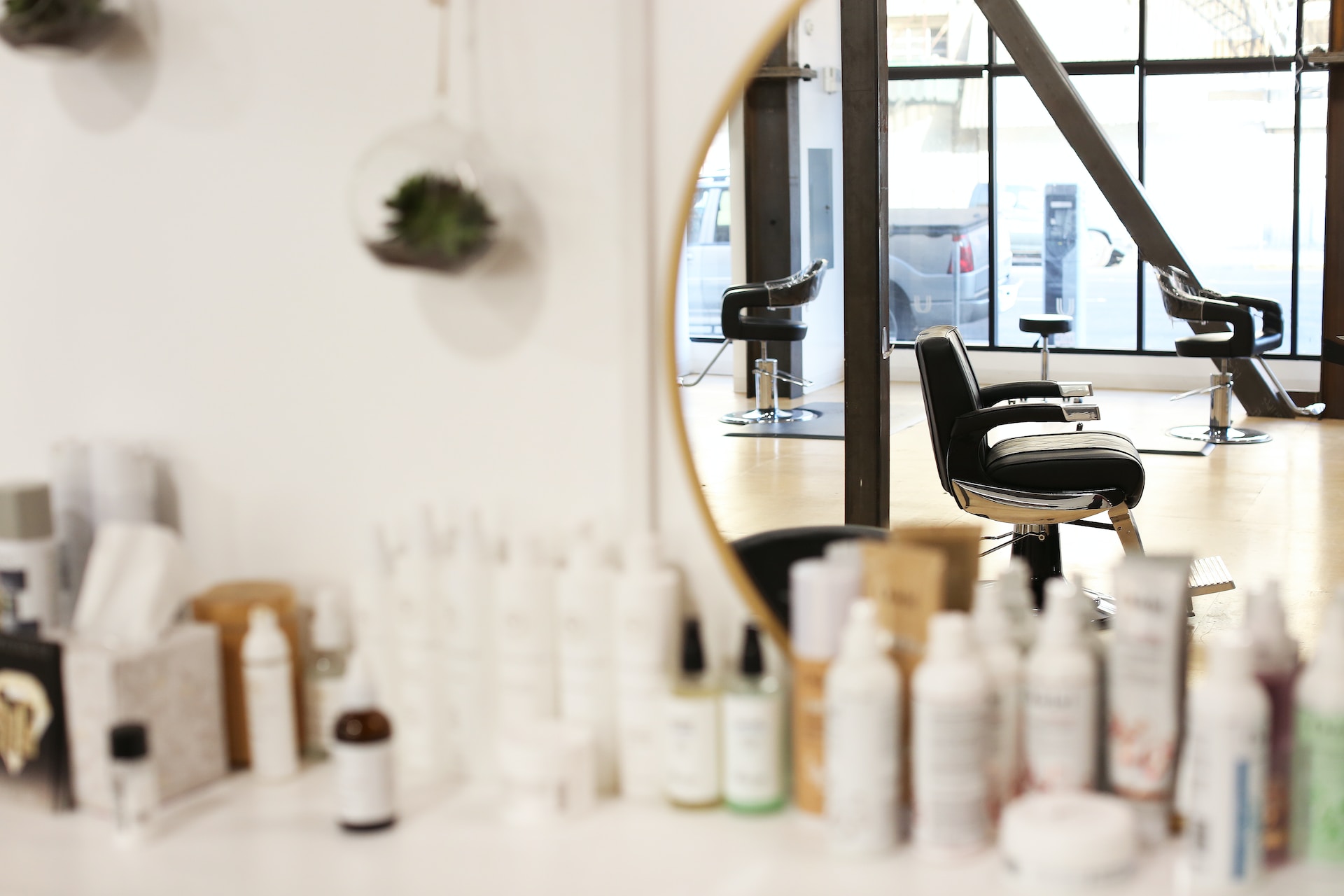L’Oréal Among Defendants in Litigation Over Hair Products.
- Dozens of hair straightener cases allege higher incidence of cancers and other diseases.
- Plaintiffs in dry shampoo litigation say products contain benzene.
- Seven companies control the U.S. hair product industry.

Photo by Giorgio Trovato on Unsplash
L’Oréal has been hit hard in recent hair care litigation related to straighteners, relaxants, and dry shampoos. L’Oréal was named a defendant in nearly sixty complaints alleging that straightening products manufactured by the beauty giant have caused cancer in its consumers. L’Oréal has also been named a defendant in a proposed class-action for its Redken dry shampoo that allegedly contains the carcinogen benzene. Other large industry players such as Johnson and Johnson and Unilever have also been accused of selling dry shampoos with dangerous levels of benzene.
Straighteners and Relaxers Litigation
Dozens of cases have been consolidated in multidistrict litigation against L’Oréal for its potentially cancerous hair straighteners and relaxers. Mitchell v. L’Oréal USA Inc. is a typical case. It was filed by Missourian Jennifer Mitchell, a black woman, after her diagnosis of uterine cancer which she claims was caused by endocrine disrupting chemicals (EDCs) in L’Oréal’s hair straighteners and relaxers. Jennifer Mitchell was diagnosed with her cancer on August 10, 2018.
“Ms. Mitchell was first exposed to EDCs and/or phthalate-based products around 2000, at or around the age of 10, when she began using Defendants’ Product.” She used the products as instructed for 22 years, leaving the chemicals in her hair for long periods of time. At the age of 28, she was diagnosed with uterine cancer despite the cancer not being in her family history. As a result of her cancer diagnosis, Ms. Mitchell had to undergo a full hysterectomy, causing her emotional and physical pain, and rendering her unable to have children.
The complaint details a long history of marketing harmful hair relaxers and straighteners to black women to combat their natural hair texture and meet a Eurocentric white beauty standard.
The filed complaint consisted of fifteen counts ranging from strict liability failure to warn and negligence to medical monitoring. The products included in the complaint were Motions, Dark & Lovely, Olive Oil Relaxer, and Organic Root Stimulator.
Ms. Mitchell’s evidence supports her claims that the products allegedly caused her cancer due to EDCs. Health issues linked to EDCs include uterine cancer, breast cancer, uterine fibroids, endometriosis, and preterm delivery, amongst others. “On October 17, 2022, a study led by the National Institutes of Health (NIH) reported findings that women who frequently used chemical hair straightening or hair relaxer products were more than twice as likely to develop uterine cancer as women who did not use such products.
Ms. Mitchell’s case was consolidated with dozens of other cases against L’Oréal and other defendants in Chicago federal court as In re: Hair Relaxer Marketing, Sales Practices, and Products Liability Litigation. The consolidation was opposed on December 7, 2022, by L’Oréal USA, Inc., L’Oréal USA Products, Inc., SoftSheen-Carson LLC, and SoftSheen-Carson (W.I.), Inc., collectively known as “the L’Oréal defendants.”
In the L’Oréal defendants’ response to the motion for consolidation, the company first outlined its issues with the frequently referenced NIH study that catalyzed the filing of many of the plaintiffs’ lawsuits. For example, L’Oréal stated that the study “did not collect information on specific brands or ingredients used by the participants,” and that “all of the women in the NIH Study had sisters who had been diagnosed with breast cancer.” L’Oréal also argued that none of the plaintiffs’ cases were similar enough to consolidate. The plaintiffs’ cases differed in products used, timespans, named defendants, and injuries.
Further, L’Oréal argued that if consolidation had to happen, then the case should use the Southern District of New York as a forum, where fifteen of the matters were pending, and where the company has its headquarters. The defendant also disagreed with the Chicago judge that the case would be assigned to—The Honorable Mary M. Rowland—claiming she lacked multidistrict litigation (MDL) experience.
Despite L’Oréal’s best efforts, its motion was fruitless. Cases in “Schedule A” of the MDL (MDL No. 3060) were consolidated on February 6, 2023. Cases from California, New York, Georgia, and Illinois, including Ms. Mitchell’s case, were assigned to The Honorable Mary M. Rowland in the Northern District of Illinois. Since the original transfer, many other actions have been added to the MDL.
Dry Shampoo Litigation
In addition to allegations that its relaxing and straightening hair products cause cancer, L’Oréal is also currently facing accusations of using benzene, a well-known carcinogen, in its dry shampoo products. Other big-names that have been appearing in dry-shampoo complaints include Johnson and Johnson (J&J)’s OGX brand and Unilever’s Dove, Nexxus, Suave, Tigi and Tresemmé brands.
What Is Benzene?
Benzene is a chemical compound that can be both naturally and man-produced. Its harm to human health has been at the heart of many instances of litigation. Benzene, “a component of crude oil, gasoline, and cigarette smoke,” has been determined to be unsafe for human exposure in any quantity greater than zero. Government bodies such as the Food and Drug Administration (FDA), the Environmental Protection Agency, the Department of Health and Human Services, and the World Health Organization have spoken out against the dangers of benzene, and have attempted to limit its exposure to the public.
Valisure’s Report
On October 31, 2022, Valisure released a Citizen Petition on Benzene in Dry Shampoo Products, which prompted the wave of dry shampoo litigation hitting the U.S. court system. The company claims to have tested 148 batches of dry shampoo from 34 different brands and found that 70% of its samples contained benzene in varying amounts.

Pictured Above: Valisure Table 6. Overview of first spray analyses by brand. In some cases, two bottles from the same lot were analyzed and these duplicate lots are grouped by a black outline around the two values.
The petition itself requested a recall of the products Valisure found to be contaminated with benzene, that the Commissioner of the FDA establish better procedures for informing the public of their exposure to dangerous substances in cosmetics, amongst other requests.
Hirsch v. L’Oréal USA, Inc.: The Complaint
In a complaint filed on November 22, 2022, Plaintiff Eileen Hirsch and others similarly situated brought suit against L’Oréal USA, Inc. for its Redken brand dry shampoo products. The class action lawsuit alleges that the product line contains benzene, a carcinogen with evidence linking it to causing cancers such as leukemia, amongst other illnesses. Benzene was not a listed ingredient in the products. Yet, the independent study performed by Valisure found that the product contained as much as 7.55 parts per million (“ppm”) of benzene.
Ms. Hirsch, a Chicago resident, purchased multiple canisters of the Redken dry shampoo from a salon in the area. The complaint alleges that she was harmed in two separate ways: “First, Ms. Hirsch purchased adulterated and misbranded products that were illegally sold to her, and therefore worthless. Second, Ms. Hirsch was deceived by Defendant’s representations and omissions regarding the presence of benzene in the Products.” Other class members are also individuals who have purchased Redken dry shampoo.
Defendant’s Motion to Dismiss
Defendant L’Oréal did its best to get the case dismissed in a motion filed on February 7, 2023. In its Motion to Dismiss, L’Oréal gave several reasons for the complaint’s deficiency, including that the plaintiffs lacked standing to bring the claim and that the claims are preempted. Further, L’Oréal argues that the independent Valisure study relied upon by the plaintiff is insufficient to support the claims, stating that “Valisure . . . [is an] untrustworthy laboratory that has been censured by the [FDA] and federal judges alike.”
Plaintiffs responded to L’Oréal’s Motion to Dismiss, stating that the case was simple, standing had been correctly established, and the defendant’s allegations of insufficient Valisure testing were premature. L’Oréal has replied to the plaintiffs’ motion, but the court has not yet ruled on the Motion to Dismiss, determining the fate of the case.
Looking Forward
Those following the concert of haircare litigation should watch closely to see which product lines are tapped next and why. L’Oréal may be one of the more popular defendants, but that does not mean there aren’t other offenders.
Most beauty products known to average consumers are owned by one of seven large companies—J&J, L’Oréal, Eéste Lauder, Unilever, Procter and Gamble, Shiseido, and Coty. For better or for worse, these corporate identities pioneer most of the research and manufacturing that goes into the creation of the world’s fashion, beauty, and hygiene products. That means when these companies use carcinogens, they can likely be found in a mind-boggling number of items behind your own bathroom mirror, leading to mass injury and extremely complex litigation.

